Summary of presentation to Carers WA Conference on 17 October 2024 by Angela Cox, Principal Lawyer and Practice Owner, Special Voices Disability Law and Advocacy
Introduction
I love the theme of this year’s Carers WA Conference: “navigating identity, change and belonging”. It is so apt in these times of system reform.
How does my presentation fit in with this theme?
Well, most of my clients are carers, usually parents or siblings of a significantly disabled child or adult and they are spent at having to navigate the NDIS, in which they usually have several unpaid identities or roles – hands on carer/support worker, support coordinator, therapist, driver, plan and financial manager, nominee, advocate, as well as mum, dad, sister or brother.
The NDIS legislation and policies and IT systems and staff such as LACs (Local Area Coordinators) and ECPs (Early Childhood Partners) are constantly changing. It’s hard to keep up with! I will touch on the NDIS Act and Rules amendments in force from 3 October later.
Belonging and recognition I think is at the heart of carers. They want this sometimes impersonal and difficult system (the NDIS) to provide them and their family with recognition and the right supports to belong to the community.
I know only too well that in many instances, the NDIS legal, policy and bureaucratic frameworks can make the unpaid carer feel, disempowered, unrecognised or undervalued.
In this presentation, I will focus on how the NDIS legal framework – comprising the NDIS Act and related Rules – treat the unpaid carer in four key areas.
I hope that understanding some of the basics of the framework may empower to understand and get the most out of the NDIS for themselves and the person they are caring for.
Focus on the NDIS Legal Framework
The framework comprises:
- NDIS Act 2013 – provides the high-level legal framework for the scheme. Recent amendments to the Act came into effect on 3 October 2024.
- NDIS Rules – various sets of Rules (made under the authority of the Act) set out the operational detail of the scheme. There are specific Rules about access, funded supports for participants, nominee arrangements and plan management, etc. New Rules to clarify what is/not a “NDIS Support” came into effect on 3 October 2024 (and more new Rules are on the way as part of the Government’s reforms).
The definition of “carer” in the NDIS Act (section 9) describes the unpaid carer. This definition is:
Carer means an individual who:
(a) provides personal care, support and assistance to another individual who needs it because that other individual is a person with disability; and
(b) does not provide the care, support and assistance:
- under a contract of service or a contract for the provision of services; or
- in the course of doing voluntary work for a charitable, welfare or community organisation; or
- as part of the requirements of a course of education or training.
In this presentation, I will focus on four key areas of “intersection” between the unpaid carer and the NDIS legal framework:
- Objects and Principles of the NDIS Act
- Reasonable and necessary supports
- Plan management options
- Nominee arrangements.
Area One: Objects and Principles of the NDIS Act
Broadly speaking, the objects and principles are aspirational statements about people with disability (PwD) and their families and carers.
There are 10 listed objects (s3) including:
- To support the independence and social and economic participation of PwD
- To support choice and control over supports
- To provide national consistency
- To promote service quality and innovation.
None of the 10 objects refer to carers per se, rather they focus on PwD.
However, s3(3) says that in giving effect to the objects of the Act, regard must be had to the broad context of disability reform including the Carer Recognition Act 2010 (Cth) (CRA).
The CRA contains a “Statement for Australia’s Carers” which is made up of 10 principles. Again, these are aspirational statements about carers. For example, the Statement says that:
- All carers should have the same rights, choices and opportunities as other Australians
- The valuable social and economic contribution of caress should be recognised
- Carers should be supported to enjoy optimum health and social wellbeing and to participate in family, social and community life.
S4 of the NDIS Act contains general principles guiding actions under the Act. There are 19 in total. Most of these are yet again aspirational type statements about the rights of PwD.
However, 3 principles do expressly acknowledge carers:
- s4(3) – People with disability and their families and carers should have certainty that people with disability will receive the care and support they need over their lifetime.
- s4(12) – The role of families, carers and other significant persons in the lives of people with disability is to be acknowledged and respected.
- s4(12A) – The relationship between people with disability and their families and carers is to be recognised and respected.
Why are objects and principles important? The answer lies in what s called the “purposive approach” to statutory interpretation. Under this approach, in interpreting a provision of an Act, the interpretation that would best achieve the purpose or object of the Act is to be preferred to each other interpretation.
That is, the purpose and objects provisions of the NDIS Act guide the interpretation of other provisions in the NDIS Act. This is something to bear in mind when advocating in NDIS matters, particularly in preparing arguments and submissions about how NDIS Act and rules should be interpreted in your case.
Area Two: Reasonable and Necessary Supports
Participants with a NDIS plan are funded for their “reasonable and necessary” (R&N) supports only in that plan.
One of the criteria in the R&N test is that “the funding or provision of the support takes account of what it is reasonable to expect families, carers, informal networks and the community to provide” (s34(1)(e)), eg, normal parental care of a child.
A NDIS plan does not directly fund carers for respite as a R&N support
However, a NDIS plan may fund, as a R&N support for the participant, supports that provide respite to the carer or otherwise help to sustain them in their caring role, eg short term accommodation or support worker hours for the participant.
R&N supports may also include training/education for carers to build their capacity to support the participant.
Does the NDIS fund family members to provide care supports to a participant? The answer is “no” (in general). However, the NDIS may fund this if there are “exceptional circumstances”. Some examples of this (from the NDIA’s operational guidelines) are:
- risk of harm or neglect to participant
- religious/ cultural reasons
- strong personal views of participant re their privacy or dignity.
In deciding whether “exceptional circumstances” exist, the NDIA will consider these factors:
- the circumstances of each case
- the participant’s expressed wishes
- what care is reasonable to expect family members to provide without payment
- whether other options to identify a suitable provider of supports have been exhausted.
Area Three: Plan Management
The NDIS Act provides participants with 3 plan management options:
- NDIA managed – participant must use registered support providers only. Thus, this option is the least flexible for obtaining supports. However, having the NDIA process and pay invoices typically reduces the administrative work of a carer who is a plan nominee or who is informally supporting a participant to manage their plan. They do not have to deal with any provider invoices as the provider sends the invoices directly to the NDIA for payment. Note, this may not suit carers who want more oversight over provider invoices.
- Plan managed – participant may use registered and unregistered support providers. Thus, this option is more flexible for obtaining supports. Having a plan manager process and pay invoices typically reduces the administrative work of a carer who is a nominee or who is informally supporting a participant to manage their plan. There may be some administrative effort for the carer in identifying and engaging suitable plan managers and building a good working relationship with them. The NDIA will pay for the plan manager’s fees via a specific allocation of funds in the NDIS plan budget.
- Self-managed – participant may use registered and unregistered support providers. Thus, this option is the most flexible for obtaining supports. However, it results in the most administrative work for a carer who is a plan nominee or who is informally supporting a participant to self-manage their plan. They must receive, process and pay provider invoices using the NDIS portal arrangements. They must be good at budgeting, to ensure the plan funds cover all the participant’s support needs in the plan period. However, this option allows for greatest control and oversight over provider invoices and how NDIS funds are spent.
There are pros and cons for each option. The choice is personal and ultimately depends on the individual participant’s (and their family’s/carer’s) preferences and circumstances.
Area Four: Nominee Arrangements
A “nominee” is a third person who is appointed by the NDIA to act and make decisions for an adult (18 years or older) participant in the NDIS, because the participant does not have capacity to act or make decisions for themselves.
In many cases, the nominee is the primary carer. If the participant has a legal guardian (appointed by the WA State Administrative Tribunal) with services power, then NDIA will generally appoint the legal guardian as the nominee.
There are 2 types of nominees.
- Correspondence nominee – receives and responds to notices and letters from the NDIA to the participant.
- Plan nominee – acts and makes decisions for the participant re their plan (eg attends plan reassessment meetings).
Usually, the NDIA appoints the same person as both the correspondence and the plan nominee.
If you are a nominee, it is important to know that you have legal duties to both the participant and to the NDIA.
- To the Participant – duty to act in their best interest, consult with them, develop their capacity to make their own decisions and to avoid or manage conflicts of interest.
- To the NDIA – you must provide information to the NDIA when asked, respond to other requests and advise the NDIA of any change in your circumstances that may affect your ability to be a nominee (eg, illness or injury).
The outlined nominee arrangements do not apply to children (ie, under 18 years old)
In most cases, a child’s parents or guardian will automatically be their child representative. They act and make decisions about the NDIS on behalf of the child.
In some cases, the NDIA may need to appoint someone else as a child representative (eg, a grandparent who is caring for the child). The legislation makes specific provision for this.
Conclusion
To sum up, the unpaid carer is recognized and impacted in various ways in the NDIS legal framework. I have outlined four ways to equip cares with knowledge that is empowering and that may help them in their interactions with the NDIS.
However, I know the legal framework, in addition to the everyday bureaucracy of the NDIS, can be challenging and tiring to navigate for the unpaid carer. Current reforms and future expected reforms will arguably make it more so.
It is therefore important for any carer who feels lost and overwhelmed to seek help from carer support groups like Carers WA, disability advocates, support coordinators, LACs, Legal Aid, community legal centres or private lawyers.





